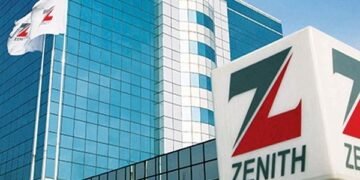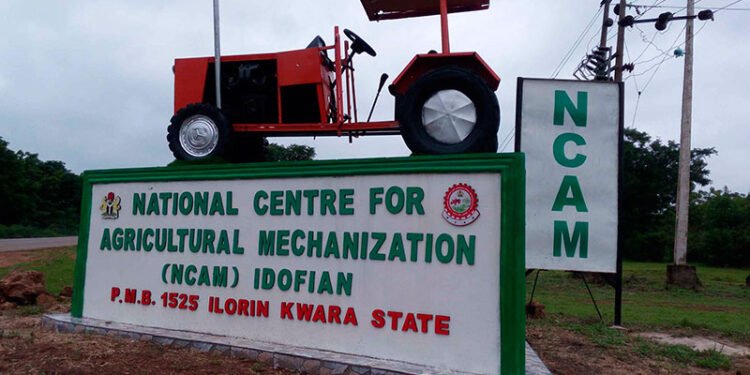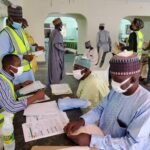Business Saturday is an hour long interactive program on the Investogist WhatsApp group, where a Business Owner, or Professionals discuss issues of business and investment or factors affecting them.
In our October Business Saturday, an Engineer with the National Center for Agricultural Mechanization (NCAM) Ilorin discusses the center and mechanized agriculture in Nigeria.
- Read also; Discos begin implementation of revised electricity tariff
- Nigerian Youth Investment Fund: Details and how to apply
Brief history and Mandate of NCAM
The historical background of NCAM dates back to 1974 when the Federal Ministry of Agriculture and Natural Resources realized the need for Nigeria to attain self-sufficiency in food and fibre production.
Government was convinced of the indispensable role of agricultural mechanization of Nigeria’s self-sufficiency in food and fibre production. The National Centre for Agricultural Mechanization (NCAM) was established by Decree No. 35 of 1990 (now an Act of the National Assembly) with the overall objective of accelerating the pace of mechanization in the agricultural sector of the Nigerian economy in order to increase the quantity and quality of agricultural products in Nigeria.
It is located at kilometre 20 Ilorin-Lokoja Highway, Idofian, Kwara State and it occupies a land area of about 950 hectares. NCAM has liaison office in Abuja and zonal offices at Samaru (Zaria), Umudike and Akure.
NCAM is mandated to mechanize Nigeria’s agriculture by developing simple need-based and low cost technologies using locally sourced materials that reduces drudgery, increase farmers’ efficiency, productivity, and their income.
The center is engaged in the following operations;
- Land Development: Land preparation for agricultural Mechanization
- Certification: Just as the Standards Organizations of Nigeria (SON), it is the duty of the center to certify all agricultural machines and equipment been imported or fabricated within the country. We will get back to this point as one of the challenges it faces.
- Training: The center is engaged in training of citizens in new agricultural practice, agricultural machines operations/handling and agricultural machines fabrication using locally sourced materials. Its is also worthy of note to add that the center has it’s own states of the arts accommodation within its premises to comfortably host more than 250 trainees at a time.
- Fabrication: Design, fabrication and evaluations of Agricultural Mechanization Technologies
- Machinery Hiring : The Center is also involved in the Lending of all the machines (with operator if needed) to all the parts of the nation
- Consultancy: Consulting in All Areas of Agricultural Mechanization
Organizational structure, staffing and Technical collaborations and cooperation
The center currently has five (5) technical and scientific departments and two (2) supporting departments.
The Technical /Scientific Departments include;
- Farm Power and Machinery (FPM) department
- Processing and Storage Engineering (PSE) Department
- Land and Water Engineering (LWE) Department
- Agro-Industrial Development & Extension (AIDE) Department
- Engineering and Scientific Services(ESS) Department
Staffing; as at October 2019, the center boosts of;
- 77 Researchers (22 M.Sc/M.Eng/MBA & 63 B.Eng/BSc)
- 32 Technical Staff
- 132 supporting staff
- Totaling 264 staff
Technical collaborations and cooperation
- With the Presidential Amnesty Programme for the Training of Ex-Militants
- With the Concern Tractor Plants, Russia
- Collaboration with Kinki University Japan on Sawah Eco-Techology and Rice Planting
- Collaboration with some Nigerian Universities
- Standards Organization of Nigeria (SON)
- World Bank Group
- Nigerian Institution of Agricultural Engineers (NIAE)
- Nebraska Tractor Test Laboratory, Lincoln U.S.A
- Agricultural Mechanization in Asia, Africa and Latin America (AMA), amongst others
Extensive gallery of innovations and strides made by the Centre
The center has developed and deployed several agricultural equipment, and these can be seen on their website.
Challenges of agricultural mechanization in Nigeria
- As stated in the beginning of this presentation, the center faces challenges in the certification and validation of agricultural machines import within Nigeria, as the center currently lacks the backing and support to enforce this. Several state government have been known to import defective and agricultural machines which do not conform to the unique needs of the Nigerian soil and known agricultural practices. Hence leading to a monumental waste of funds.
- The center has yet to achieve national-wide knowledge of her existence (One of a kind in the West Africa), and is currently working on increasing the awareness of the citizens and stakeholders to take advantage of this establishment.
Future of Agricultural Mechanization in Nigeria.
The center is embarking on a nation-wide awareness campaign on the six geopolitical zones in Nigeria, Below are some of the moves they are making to spread the message of agricultural mechanization to all nooks and cranny in Nigeria.
- Regular Organisation of training for women and youths in New agricultural technologies and operation of machines
- Regular Exhibition and Expo’s at the various states in Nigeria
- Creation of Model centers in; Cassava model centers in Kwara, Imo, and Edo state, Rice model centers in all 6 geopolitical zones
- A contract has been signed with Avanblanche Rice processing to establish local rice milling centers in; Ebonyi, Akwa-Ibom, Ogun, Nasarawa, Borno, Kebbi
- Establishment of Field Offices; South-East in Abia state (Nigerian Root Crops Research Institute) at Umudike 16 – 17 Sept 2020, North-Central In Nasawara ADP 27 – 28 Oct 2020, South-West in Akure, Kaduna, Abuja.
By; Promise Nwaobilor (Mechanical/Instrumentation Engr at National Center for Agricultural Mechanization (NCAM) Ilorin).
























































